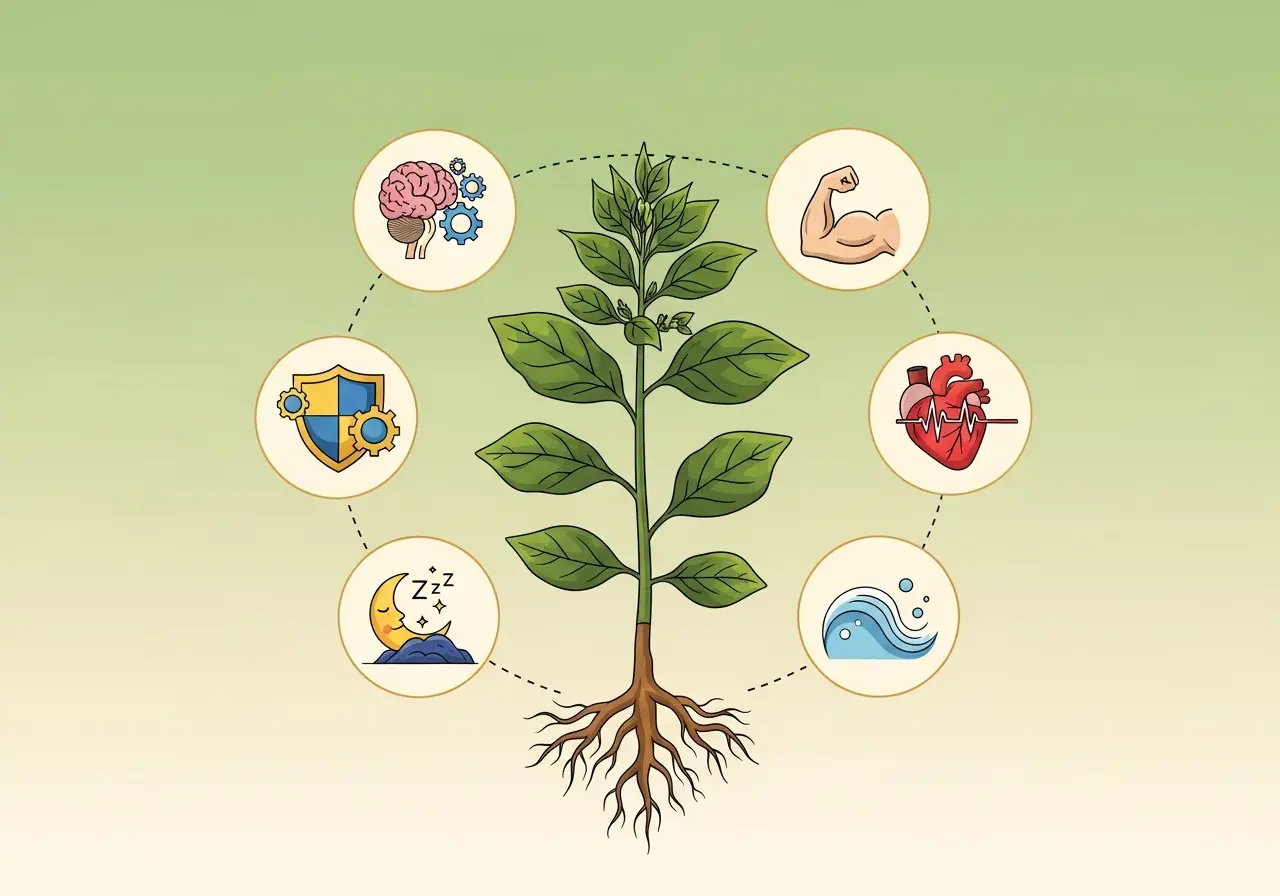Microbiology is a fascinating scientific discipline. It delves into the study of microscopic organisms such as bacteria, viruses, fungi, and protozoa. Microbiologists play a critical role in various sectors, from healthcare and pharmaceuticals to food safety and environmental science. Their expertise is vital for understanding disease, developing new medicines, ensuring public health, and innovating industrial processes. For those considering a career in this dynamic field, understanding the salary landscape in India is essential. This comprehensive guide provides detailed insights into microbiologist salaries, covering freshers’ pay, average and highest earnings, and variations based on company, qualification, skills, job profile, experience, and location.
Table of Contents
Salary of a Microbiologist: Per Month, In India, For Freshers, Starting Salary, Average Salary, Highest Salary
The salary of a microbiologist in India varies significantly based on numerous factors. This section provides an overall picture of the earning potential.
For Freshers and Starting Salary: Entry-level microbiologists in India can expect a starting salary ranging from ₹14,000 to ₹25,000 per month. This translates to an annual package of approximately ₹1.8 lakhs to ₹3.0 lakhs. Graduates with an M.Sc. in Microbiology might see starting packages between ₹3.5 lakhs to ₹5 lakhs per annum. These initial roles often involve quality control, laboratory assistance, or basic research activities.
Average Salary: The average Microbiologist salaries in India is approximately ₹3.20 lakhs per annum. Some sources indicate a higher average of around ₹7.81 lakhs per year, with a monthly equivalent of about ₹42,320. This broad average accounts for various experience levels, qualifications, and types of organizations.
Highest Salary: Highly experienced and skilled microbiologists, especially those in senior research, leadership, or specialized roles, can command significantly higher salaries. The highest salaries for microbiologists in India can exceed ₹20 lakhs to ₹30 lakhs per annum. Top earners, particularly in multinational pharmaceutical or biotechnology companies, might even reach ₹49.1 lakhs per year or more. These top positions often involve critical decision-making, advanced research, or significant project management.
Salary of a Microbiologist: Company Wise
The employing company significantly influences a microbiologist’s salary. Multinational corporations and large pharmaceutical companies generally offer more competitive packages compared to smaller firms or academic institutions.
- Pharmaceutical Companies (e.g., Cipla, Aurobindo Pharma, Takeda Pharmaceutical, Dr. Reddy’s Laboratories, Serum Institute of India): These companies are major employers. They offer salaries ranging from ₹3.0 lakhs to ₹7.0 lakhs per annum for mid-level roles, and significantly higher for experienced professionals. For instance, Takeda Pharmaceutical and Colgate-Palmolive have reported average salaries up to ₹7 LPA and ₹8 LPA, respectively.
- Biotechnology Companies (e.g., Biocon, Concord Biotech, Plasma Gen Biosciences): Biotechnology firms often offer competitive salaries, especially for those involved in R&D. Average packages can be around ₹2.5 lakhs to ₹7.0 lakhs per annum, with top roles reaching much higher.
- Food and Beverage Industry (e.g., PepsiCo, Hindustan Unilever Limited, Parle): Microbiologists ensure product safety and quality in this sector. Salaries typically range from ₹3.0 lakhs to ₹8.0 lakhs per annum.
- Diagnostic Laboratories (e.g., Neuberg Diagnostics, Thyrocare): These labs hire microbiologists for testing and analysis. Salaries might range from ₹2.5 lakhs to ₹5.0 lakhs per annum.
- Research Institutions (e.g., ICMR, NCDC, CSIR labs, AIIMS): Government and private research institutes offer stable careers. Salaries for research associates and scientists can range from ₹3.0 lakhs to ₹10 lakhs per annum, depending on the project and seniority.
Salary of a Microbiologist: Qualification Wise
The level of education plays a crucial role in determining a microbiologist’s earning potential and career progression.
- B.Sc. Microbiology: Graduates with a Bachelor of Science in Microbiology typically start with salaries ranging from ₹2.0 lakhs to ₹3.5 lakhs per annum. With a few years of experience, this can increase to ₹4.0 lakhs to ₹6.0 lakhs per annum.
- M.Sc. Microbiology/Applied Microbiology: A Master’s degree significantly enhances earning potential. M.Sc. graduates can expect starting salaries of ₹3.0 lakhs to ₹5.0 lakhs per annum. Mid-career professionals with an M.Sc. can earn ₹5.0 lakhs to ₹8.0 lakhs per annum. Some sources suggest an average of ₹7.0 lakhs per annum for M.Sc. graduates.
- M.Tech Microbiology: An M.Tech in Microbiology can lead to salaries from ₹5.0 lakhs to ₹10 lakhs per annum, especially in industrial or biotechnology sectors.
- Ph.D. Microbiology: A Ph.D. is essential for advanced research and academic roles. Ph.D. holders command the highest salaries, typically starting from ₹6.0 lakhs to ₹12 lakhs per annum and potentially much higher in senior research or leadership positions.
Salary of a Microbiologist: Skill Wise
Specific skills can significantly boost a microbiologist’s salary. Expertise in certain areas makes candidates more valuable to employers.
Navigating the Digital Realm: A Deep Dive into BCA Salaries in 2025
- Molecular Biology Techniques: Proficiency in PCR, DNA sequencing, cloning, and gene editing is highly valued. This can lead to higher salaries in research and biotech.
- Good Manufacturing Practices (GMP) and Quality Control (QC): Knowledge of regulatory guidelines and quality assurance processes is critical in pharmaceutical and food industries. This skill set ensures product safety and compliance.
- Analytical and Diagnostic Skills: Strong ability to analyze samples, identify microorganisms, and interpret results is fundamental. This is crucial for roles in clinical microbiology and diagnostics.
- Bioinformatics and Data Analysis: As microbiology becomes more data-driven, skills in bioinformatics tools and statistical analysis are increasingly in demand. This applies to genomics and proteomics.
- Aseptic Techniques: Meticulous adherence to sterile procedures is paramount in all laboratory settings. This skill minimizes contamination and ensures accurate results.
- Research and Development (R&D): A strong background in research methodology, experimental design, and scientific writing is highly sought after. This leads to roles in drug discovery and vaccine development.
- Communication and Teamwork: Effective communication of scientific findings and collaborative work skills are essential for career advancement. This facilitates interdisciplinary projects.
Salary of a Microbiologist: Job Profile Wise
The specific job role or profile greatly influences a microbiologist’s salary, reflecting the level of responsibility and specialization.
- Microbiologist (General): This entry-level role typically earns ₹3.0 lakhs to ₹6.0 lakhs per annum.
- Quality Control (QC) Analyst/Officer: Focused on product safety and quality assurance. Salaries range from ₹2.0 lakhs to ₹5.0 lakhs per annum.
- Research Associate/Scientist: Involved in laboratory research and experimentation. Salaries can range from ₹3.5 lakhs to ₹10 lakhs per annum, depending on experience and the nature of research.
- Medical Microbiologist/Clinical Microbiologist: Works in healthcare settings to diagnose infectious diseases. Average salaries are around ₹4.0 lakhs to ₹8.0 lakhs per annum. Some can earn up to ₹20.10 lakhs per annum.
- Industrial Microbiologist: Applies microbiology principles in industries like pharmaceuticals, food, or brewing. Salaries can be around ₹4.0 lakhs to ₹8.6 lakhs per annum.
- Food Technologist/Food Safety Officer: Ensures safety and quality in the food industry. Salaries typically range from ₹3.0 lakhs to ₹7.0 lakhs per annum.
- Environmental Microbiologist: Studies microorganisms in the environment for pollution control or bioremediation. Salaries can be ₹3.0 lakhs to ₹6.0 lakhs per annum.
- Consultant Microbiologist: Provides specialized advice to organizations. This senior role can command ₹12 lakhs per annum or more.
- Agricultural Microbiologist: Focuses on microbes in agriculture, like soil microbiology. Salaries range from ₹3.0 lakhs to ₹5.0 lakhs per annum.
- Biomedical Scientist: Conducts laboratory tests for diagnosis and research. Average salaries are around ₹4.2 lakhs to ₹9.0 lakhs per annum.
Educating the Nation: A Comprehensive Guide to Teacher Salaries in India 2025
Salary of a Microbiologist: Experience Wise
Experience is a critical factor in salary progression for microbiologists. As professionals gain more years in the field, their expertise and value increase, leading to higher compensation.
- Entry-Level (0-2 years): Average annual salary of ₹2.0 lakhs to ₹3.5 lakhs.
- Early Career (2-5 years): Salaries typically increase to ₹3.0 lakhs to ₹6.5 lakhs per annum.
- Mid-Career (5-10 years): Professionals with this experience can expect ₹6.0 lakhs to ₹10 lakhs per annum.
- Senior-Level (10-15 years): Salaries often range from ₹10 lakhs to ₹15 lakhs per annum.
- Highly Experienced (15+ years): Top professionals can command ₹12.5 lakhs to ₹20 lakhs per annum or even higher, especially in leadership or principal scientist roles.
Salary of a Microbiologist: City Wise
Geographical location significantly impacts a microbiologist’s salary, with metropolitan and industrial hubs generally offering higher remuneration.
- Mumbai: This major economic and pharmaceutical hub offers some of the highest salaries, with averages around ₹11.8 lakhs per annum for experienced professionals.
- Bangalore: As a biotechnology and IT hub, Bangalore offers competitive salaries, with averages around ₹7.1 lakhs per annum.
- Hyderabad: A growing pharmaceutical and biotech center, Hyderabad provides good opportunities, with average salaries around ₹6.1 lakhs per annum.
- Pune: Pune is emerging as a significant hub for microbiologists, with average salaries around ₹5.3 lakhs per annum.
- New Delhi/NCR: The capital region offers varied opportunities. Average salaries are around ₹5.2 lakhs per annum.
- Chennai: Salaries in Chennai average around ₹3.5 lakhs per annum.
- Kolkata: Salaries in Kolkata average around ₹4.4 lakhs per annum.
- Tier-2 & Tier-3 Cities: Smaller cities generally have lower living costs and consequently offer lower salaries, typically ranging from ₹2.0 lakhs to ₹4.0 lakhs per annum.
Salary of a Microbiologist: Country Wise
Working as a microbiologist abroad can offer significantly higher salaries compared to India, though it often requires specific qualifications, language proficiency, and visa processes.
- USA: Microbiologists in the USA can earn an average annual salary of $70,000 to $90,000 USD (approximately ₹58 lakhs to ₹75 lakhs). Experienced professionals can earn over $100,000 USD annually.
- UK: Salaries for microbiologists in the UK typically range from £25,000 to £50,000 GBP per annum (approximately ₹26 lakhs to ₹52 lakhs). Highly specialized roles can command more.
- Canada: Microbiologists in Canada can expect to earn between CAD 50,000 to CAD 80,000 per annum (approximately ₹30 lakhs to ₹49 lakhs).
- Germany: Salaries for microbiologists in Germany range from €35,000 to €60,000 per annum (approximately ₹31 lakhs to ₹53 lakhs), with a strong emphasis on research.
- Australia: Microbiologists in Australia can earn between AUD 60,000 to AUD 100,000 per annum (approximately ₹33 lakhs to ₹55 lakhs).
- Middle East (e.g., UAE, Saudi Arabia): These regions offer attractive, often tax-free, salaries ranging from AED 4,000 to AED 10,000+ per month (approximately ₹90,000 to ₹2.2 lakhs+ per month), with benefits like accommodation.
Engineering Your Future: A Comprehensive Guide to B.Tech Salaries
Skills of a Microbiologist
To thrive in the field of microbiology and command a good salary, a specific set of technical and soft skills is indispensable.
- Laboratory Skills: Proficiency in aseptic techniques, microscopy, culturing microorganisms, staining techniques, and biochemical tests.
- Molecular Diagnostics: Expertise in techniques like PCR, ELISA, Western Blotting, and flow cytometry.
- Data Analysis: Ability to interpret experimental results, use statistical software, and present findings clearly.
- Research Methodology: Strong understanding of experimental design, data collection, and scientific inquiry.
- Problem-Solving: Capability to identify issues, troubleshoot experiments, and develop solutions.
- Attention to Detail: Meticulousness in conducting experiments and recording observations to ensure accuracy.
- Communication Skills: Effective written and oral communication for reports, presentations, and collaborations.
- Teamwork and Collaboration: Ability to work effectively in multidisciplinary teams.
- Regulatory Knowledge: Understanding of safety regulations, quality assurance, and ethical guidelines (e.g., GLP, GMP).
- Critical Thinking: Ability to evaluate scientific literature, question assumptions, and draw logical conclusions.
- Documentation: Accurate and thorough record-keeping for experiments and results.
Top Recruiters of a Microbiologist
The demand for microbiologists spans across various industries in India. Several top companies and institutions actively recruit qualified professionals.
- Pharmaceutical and Biopharmaceutical Companies: Cipla, Dr. Reddy’s Laboratories, Serum Institute of India, Biocon, Pfizer, Novartis, GlaxoSmithKline (GSK), Aurobindo Pharma, Mankind Pharma, Takeda Pharmaceutical.
- Food and Beverage Industry: Hindustan Unilever Limited, PepsiCo, Parle, Nestle, Britannia.
- Healthcare and Diagnostics: Apollo Hospitals, Fortis Healthcare, Thyrocare, SRL Diagnostics, Neuberg Diagnostics.
- Research and Development Institutions: Indian Council of Medical Research (ICMR), National Centre for Disease Control (NCDC), Council of Scientific and Industrial Research (CSIR) labs, All India Institute of Medical Sciences (AIIMS).
- Environmental Agencies: Pollution Control Boards, environmental consulting firms.
- Academic Institutions: Universities and colleges hire microbiologists as faculty or research assistants.
- Government Organizations: FSSAI (Food Safety and Standards Authority of India), Central Drug Research Institute (CDRI).
- Industrial Labs: Companies involved in fermentation, brewing, and chemicals.
Salary of a Microbiologist: FAQs
This section addresses common questions about microbiologist salaries and career prospects.
Q: Is microbiology a good career choice in India?
A: Yes, microbiology is a promising career choice in India. The growing healthcare, pharmaceutical, food, and environmental sectors ensure consistent demand for skilled microbiologists, offering diverse opportunities and competitive salaries, especially with experience and higher qualifications.
Q: What is the highest qualification for a microbiologist to earn more?
A: A Ph.D. in Microbiology generally leads to the highest earning potential, especially for roles in advanced research, academia, and leadership positions within pharmaceutical or biotechnology companies.
Q: What kind of jobs can a fresher microbiologist get?
A: Freshers can typically find roles as Junior Microbiologists, Quality Control Analysts, Lab Assistants, Research Assistants, or Technical Support Associates in pharmaceutical companies, diagnostic labs, or food industries.
Q: Does working in a government lab offer better stability or salary?
A: Government labs and research institutions offer high job stability, fixed pay scales (often revised by pay commissions), and comprehensive benefits like pension and medical facilities. While starting salaries might sometimes be lower than top private firms, long-term stability and benefits are significant advantages.
Q: How can a microbiologist increase their salary significantly?
A: To significantly increase salary, a microbiologist should focus on gaining experience, pursuing higher education (M.Sc., Ph.D.), acquiring specialized skills (e.g., molecular diagnostics, bioinformatics), getting certifications, and targeting roles in multinational pharmaceutical or biotechnology companies, or moving into leadership positions.
Conclusion: A Crucial Scientific Role with Evolving Rewards
Microbiology is a foundational science with profound implications for global health, industry, and the environment. Careers in microbiology offer intellectual stimulation and the opportunity to contribute significantly to society. While starting salaries provide a solid entry point, the field promises substantial financial growth with continuous learning, skill development, and progression into specialized and leadership roles. The increasing complexity of microbial challenges ensures a sustained demand for talented microbiologists, making it a rewarding and impactful career choice.



